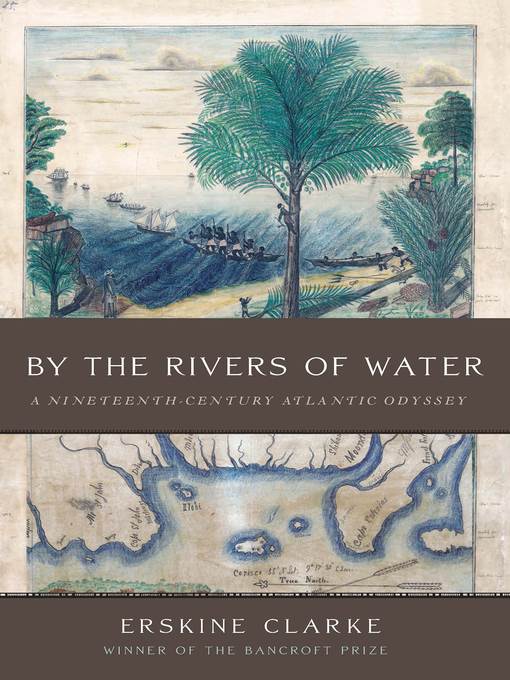
By the Rivers of Water
A Nineteenth-Century Atlantic Odyssey
کتاب های مرتبط
- اطلاعات
- نقد و بررسی
- دیدگاه کاربران
نقد و بررسی

August 19, 2013
In 1834, a devout newlywed couple sailed from their native Georgia for Liberia to spread the Gospel. Most missionaries to Africa died, but the couple survived and persevered, working tirelessly if not always successfully to do good and returning to America in 1852, where their antislavery views did not prevent them from supporting the South as the Civil War loomed. Despite his subjects’ unimaginable piety, Clarke (Dwelling Place), professor emeritus of American religious history at Columbia Theological Seminary, clearly admires John Leighton Wilson and his wife Jane. Hoping to educate as well as convert, they studied indigenous tribes, tried to understand native cultures, and treated those they encountered as equals. This contrasted ironically with thousands of freed black Americans who were persuaded to return to Africa during this period. These freemen considered themselves superior to the natives whom they misunderstood, brutalized, and exploited—exactly as white European settlers treated American Indians. An original history that tells the engrossing story of two white missionaries and their often stormy relations with their mostly black fellow countrymen, against the background of America descending into Civil War. 30 b&w illus., 7 maps.

September 1, 2013
A sinuously nuanced pursuit of a Southern Christian missionary couple's conflicted journey from slaveholding Savannah, Ga., to West Africa. In the thoroughgoing fashion of his Bancroft Prize-winning Dwelling Place (2005), religion historian Clarke devotes enormous care to delineating every aspect of the world known to his protagonists: Jane Bayard, from Savannah, and John Leighton Wilson, from Black River, S.C. The two well-to-do products of white plantation culture had made a marriage of convenience in 1834 in order to fulfill their dream of embracing missionary work in Liberia, as part of the expanding evangelical work sponsored by the American Presbyterian and Congregationalist churches. It was brave and dangerous work, especially since the pernicious miasmas (malaria) had felled most of the other white missionaries who arrived. However, the Wilsons survived, even thrived, setting up missions and schools for the colonists and native peoples. Newly freed--some of Jane's own slaves from the Gullah community had been offered the choice to make a new life in Liberia--the African-American colonists were often riven by dissension, prompting the Wilsons to move father south to Gabon to start another mission among the Mpongwe. Curiously, with the election of Abraham Lincoln, patriotism resolved the couple to return to the South, believing "that the question of liberty was at the heart of the crisis." Clarke underscores the irony of their use of the word "liberty" (as in the liberty of the North "to impose its will on the South"): This wise couple, who had fought the international slave law and worked fervently to educate and uplift the freed slaves, emerged from the war's devastation mystified but committed to a moribund "Southern way of life." A florid yet thorough and compelling history of missionary work and the 19th-century African-American experience both in America and abroad.
COPYRIGHT(2013) Kirkus Reviews, ALL RIGHTS RESERVED.

Starred review from September 15, 2013
John Leighton Wilson (1809-86) traveled from Georgia and South Carolina's low country to West Africa in 1832 as a Presbyterian missionary. In 1834, his bride, Jane Bayard Wilson (1814-85) of Savannah, joined him on a 17-year odyssey that Bancroft Prize winner Clarke (American religious history, emeritus, Columbia Theological Seminary; Dwelling Place: A Plantation Epic) renders in a sweeping saga of personal challenges and cultural changes. Clarke observes Christian conviction among the Wilsons and other dedicated missionaries and missionized peoples in what became Liberia. African Americans also figure prominently: Wilson was himself a slaveholder who emancipated the slaves he inherited. His missionizing joined with the American colonization movement that removed free blacks to Africa. Clarke relates the Wilsons' love story, the feuding among missionaries, contention between African Americans and African natives, and racial interactions. With the Wilsons' return to the United States as the Civil War drew near, U.S. sectional clashes also emerge in the narrative. VERDICT Brimming with insights about interconnected individuals, peoples, and societies struggling with conscience and dignity to make moral choices amid clashing, if not collapsing, worlds, this work is required reading for anyone interested in a sympathetic understanding of early U.S. missionaries in West Africa, the perils of the U.S. colonization movement, Civil War tensions, or Atlantic world connections.--Thomas J. Davis, Arizona State Univ., Tempe
Copyright 2013 Library Journal, LLC Used with permission.

September 15, 2013
In 1832, a young missionary couple, both born and bred in the southern aristocracy, set off to Liberia, where a colony of freed slaves had recently settled. John Leighton Wilson and his wife, Jane, had inherited slaves of their own and faced the dilemma of what to do with them before sailing off to save souls in Africa. Writing from the perspectives of white missionaries and African Americans (enslaved and freed) as well as Africans, historian Clarke offers a complex portrait of the countervailing forces of the nineteenth century as America grappled with the profound contradictions of slavery. The missionary zeal to convert Africans to Christianity often lacked basic respect for them as humans, and the motivation of the colonizing societies often had more to do with ridding America of blacks than liberating blacks from slavery. The Wilsons spent two decades in West Africa, learning the language and customs and confronting their own biases as well as the contradictions they saw in the colony, witnessing racial and ethnic turmoil as vile as that under American slavery. Their story is one of good intentions and cruel consequences, and the enigma of human freedom in the midst of slavery and the contingencies of human life.(Reprinted with permission of Booklist, copyright 2013, American Library Association.)

























دیدگاه کاربران